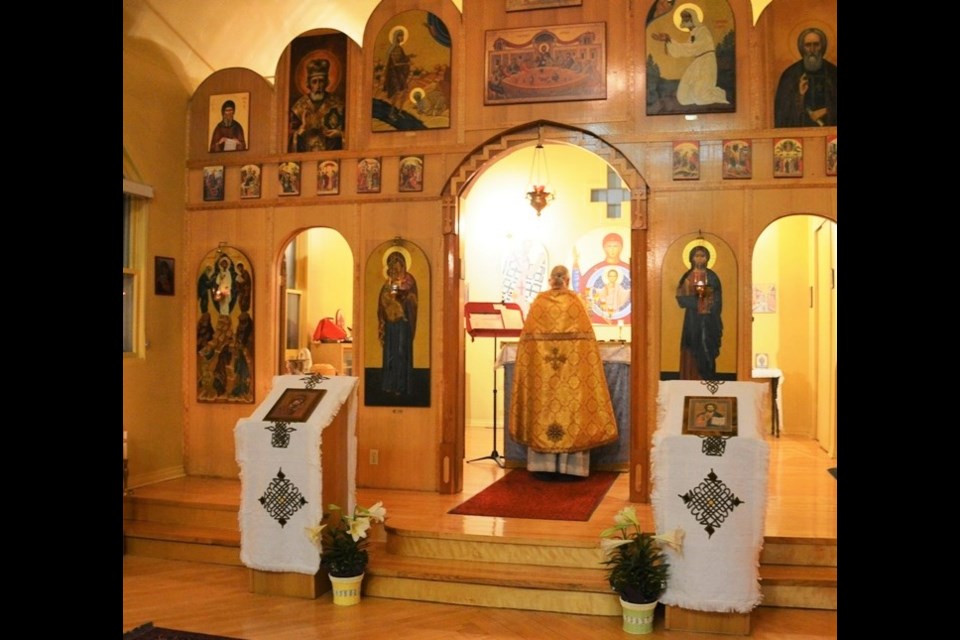While most Christians in the Western world held their Easter services in early April, Orthodox Christians will hold their Easter vigil services this weekend.
Holy Trinity Orthodox Church in Moose Jaw will hold a lamentations service tonight at 7 p.m. as part of the Great and Holy Friday service, followed by a vespers liturgy at 9 a.m. on Saturday, May 1, a Holy Saturday Pascha Matins and Liturgy service at 10:30 p.m., and a Pascha vespers liturgy at 1 p.m. on Easter Sunday, May 2.
The Holy Saturday service will go nearly four hours, and while it does take some time, the church is cutting down what it normally does during the service due to pandemic restrictions, said Father John Bingham. There will be a limited number of people who can attend, while there will be no post-service lunch.
“It’s not as good as it could be, but it’s better than it was last year,” he said. “Just immediate family was all we could handle last year with restrictions.”
The fact Holy Trinity can even hold Easter services this weekend is great, since the provincial government has been gracious enough to allow these get-togethers while other gatherings have been denied elsewhere, Bingham added.
Bingham expects 20 to 25 parishioners to attend the Easter services this weekend.
Origins of Orthodox Easter
According to Christianity.com, in 325 A.D., the Council of Nicaea decided that Easter would be observed on the first Sunday after the first full moon on or after the March equinox. While the Council of Nicaea set the Easter date for most churches worldwide, not all Christian churches observe Easter using the Gregorian calendar. Many Orthodox churches still witness Easter while following the Julian calendar.
Julian vs Gregorian calendar
The reason for the two different calendars came from a miscalculation of astronomy, the website explained. The primary goal of creating the Gregorian calendar was to alter the time of Easter.
“In 1582, when Pope Gregory XIII introduced his Gregorian calendar, Europe adhered to the Julian calendar, first implemented by Julius Caesar in 46 B.C. Since the Roman emperor’s system miscalculated the solar year's length by 11 minutes, the calendar had since fallen out of sync with the seasons,” the website said. “This concerned Gregory because it meant that Easter, traditionally observed on March 21, fell further away from the spring equinox with each passing year.”
Orthodox Easter Foods
Greek Orthodox Christians traditionally break the Lenten fast after the midnight Resurrection Service. Traditional foods are a lamb and Tsoureki Paschalino, a sweet Easter dessert bread, according to learnreligions.com.
Serbian Orthodox families traditionally begin feasting after Easter Sunday services. They enjoy appetizers of smoked meats and cheeses, boiled eggs and red wine. The meal consists of chicken noodle or lamb vegetable soup followed by spit-roasted lamb.
Holy Saturday is a day of strict fasting for Russian Orthodox Christians, while families stay busy preparing for the Easter meal. Usually, the Lenten fast is broken after the midnight mass with traditional Paskha Easter bread cake.




